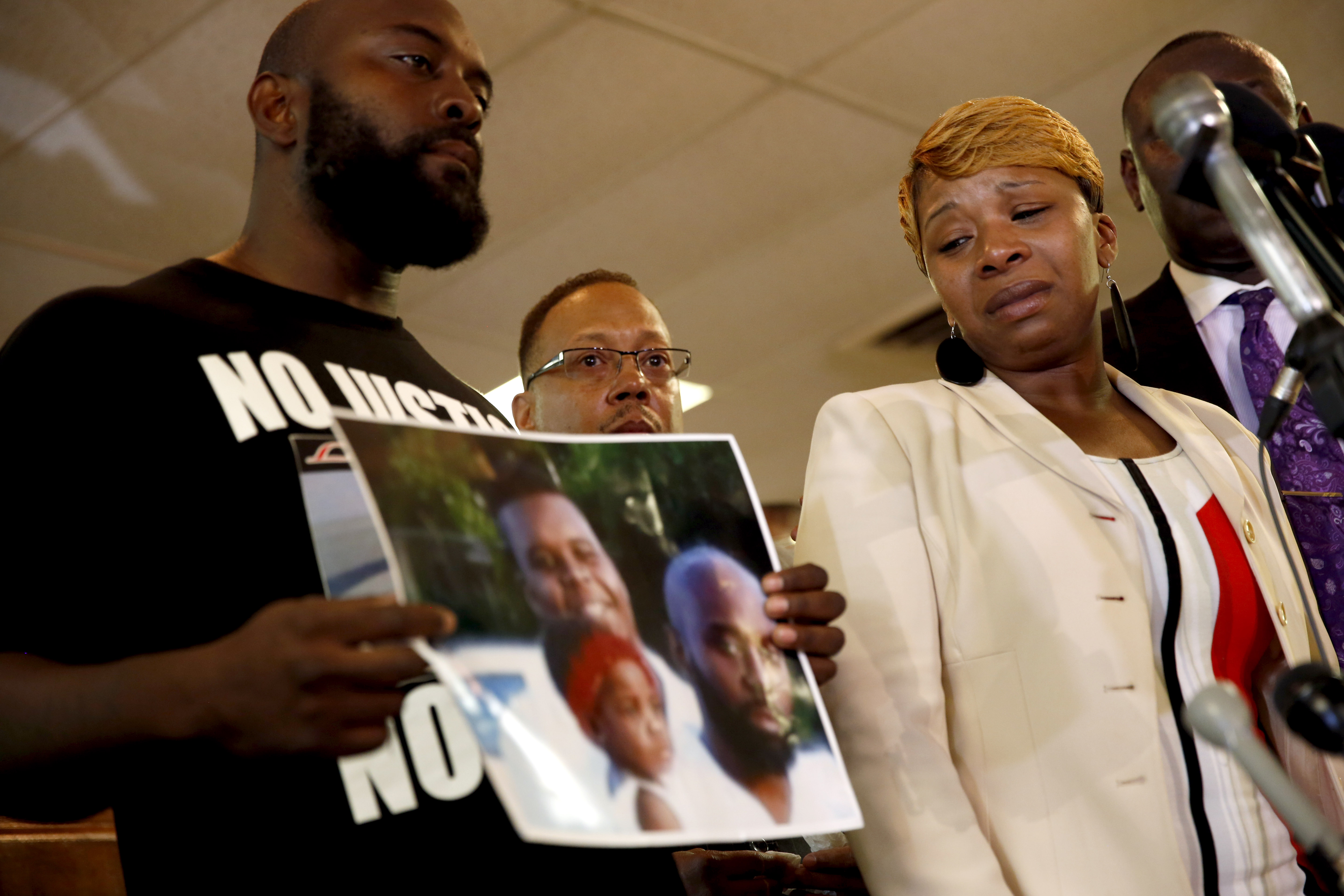A new and previously unseen security tape containing footage of Michael Brown before he was shot on August 9, 2014, appears to contradict statements made by the Ferguson, Missouri, police department about the circumstances surrounding his death.
The tape, obtained by the documentary filmmaker Jason Pollock and included in his film “Stranger Fruit,” seems to show Brown entering a convenience store around 1 a.m. on the day he died and handing what looks like a small bag to employees behind the store’s counter.
The video then appears to show the employees passing the bag to one another and smelling its contents. Afterward, employees handed Brown cigarillos, the footage shows. Brown walked away with the cigarillos before the video shows him coming back and giving them to the employees for what Pollock says was safekeeping.
The clip shows Brown returning to the store around noon and waiting at the counter with his hands clasped behind his back. Pollock, who narrates the video, says at this point: “[Brown] left his items at the store and he went back the next day to pick them up. Mike did not rob the store.”
The video, the veracity of which has not yet been confirmed, raises questions about the police department’s claim that Brown committed a strong-armed robbery of the convenience store. When the case initially gained national attention, the police released security footage from a store nearby that showed Brown pushing an employee and taking the cigarillos shortly before Officer Darren Wilson shot him.
However, the footage obtained by Pollock seems to imply that Brown was exchanging goods, not robbing the store.
"There was some type of exchange, for one thing, for another," Lesley McSpadden, Brown's mother, said in the documentary, which premiered at the South by Southwest festival on Saturday.
She said that the police department didn't show "that there was an understanding" between the parties involved.
That account was disputed by Jay Kanzler, an attorney who represents the convenience store and its employees.
"There was no transaction," Kanzler told The New York Times. "There was no understanding. No agreement. Those folks didn't sell him cigarillos for pot. The reason he gave it back is he was walking out the door with unpaid merchandise and they wanted it back."
Pollock, whose documentary tells Brown's story from his family's perspective, pushed back against the police department's and Kanzler's claims.
"They destroyed Michael's character with the tape, and they didn't show us what actually happened," Pollock told The Times. "So this shows their intention to make him look bad. And shows suppression of evidence."
Watch CNN's segment featuring the footage »

